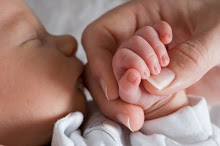Taking Care of Yourself After the Birth
The postpartum period begins after the delivery of the baby and ends when the mother's body has returned as closely as possible to its pre-pregnant state, usually lasting around 6 to 8 weeks.
After the birth, you will experience many changes, both physical and emotional, while you learn how to adjust to being a new mother.
The postpartum period is not only the recovery but also the time to learn about your baby and how to function as a changed family unit. Contrary to popular belief, this period is not always spent cooing over your new baby and basking in the feelings of happy family life.
For many women, this is a turbulent time. You need to adapt to waking up every few hours through the night and you may be dealing with the pain of an episiotomy, caesarean or traumatised nipples. There may be major alterations in the dynamics of your relationship with your partner or issues with the dynamics of extended family. There are also many hormone changes taking place while your body recovers from the pregnancy and adjusts to breastfeeding. It can be an emotionally draining time that has to be worked through on broken sleep.
Fortunately, there are many things you can do to make this time more enjoyable so that you and your partner can concentrate on the important process of getting to know and falling in love with your baby.
- In the first few weeks, try to let go of all of your responsibilities other than feeding the baby and looking after yourself
- Sleep when the baby sleeps. This may be only a few minutes' rest several times a day, but these minutes can add up
- Have your baby's bed near yours at night or sleep with your baby in your bed. This can be a wonderful way to minimise the sleep deprivation that can make it so much more difficult to cope with the demands of a newborn. Co-sleeping also has the added benefit of protection against SIDS if you follow a few basic rules. See safety guidelines for co-sleeping
- Many new parents enjoy visits from friends and family, but you don't need to feel obligated to entertain. When the opportunity arises, feel free to excuse yourself for a nap. Most people will understand
- Get outside for a few minutes each day. You can begin walking as soon as it feels comfortable for you
Many mothers may be so tired or busy that they forget to eat. It's not uncommon for a new Mum to realise it's 4pm and that she hasn't eaten anything all day. Try planning simple meals in advance. Maybe you would like to share your suggestions in the Natural Transition forum.
The weight gained in pregnancy helps build energy stores for your recovery and for breastfeeding. After delivery, it is important that you continue to follow a good diet that will maintain your energy and immune system so that you can be active and able to care for yourself and your family.
Although most mothers want to lose their pregnancy weight, extreme dieting and rapid weight loss can be hazardous to your health and will not give your baby the best breast milk you can make. It can take several months to lose the weight gained during pregnancy and some mothers find that they don't start losing weight until they finish breastfeeding. Safe weight loss can be achieved by following the dietary guidelines for fertility, pregnancy and breastfeeding, as well as by getting regular exercise.
Along with balanced meals, it's important to drink plenty of water, preferably filtered water. Many mothers find that they become very thirsty while breastfeeding; drinking the recommended 33ml per kg of body weight is still adequate while breastfeeding.
Help for new parents
New as well as experienced parents soon realise that babies require a lot of work. Meeting the constant needs of a newborn involves time and energy and often takes parents away from other responsibilities in the home.
Although you may do well on your own, having someone else around to help with household chores usually makes the adjustment to a new baby easier. You can concentrate on the needs of your baby and the modified family dynamics rather than on the laundry or dirty dishes.
Helpers can be family, friends or a paid home care provider. A family member such as your mother, mother-in-law or sister may be able to come for a few days or longer. A doula can help with postpartum household needs, as can home care providers who offer a variety of services, from housekeeping to the care of other children. Check the Natural Transition Directory to find a home care provider close to you.
Whomever you decide to have as helpers, it can be beneficial for all involved if you are clear on the things you expect them to do and the things you don't want them to do. Well thought-out communication can prevent hurt feelings or misunderstandings when emotions are fragile in the first few weeks. For example, the new grandmother may want to help by feeding the baby a bottle, while your priority is bonding with your baby and building up a milk supply that meets your new baby's needs. Often all that this situation requires is prior notice that you are committed to establishing a good milk supply and that the best way to do this is to keep your baby from using bottles. Maybe a quick explanation of how breastfeeding works will help others understand.
Here's a list of suggested jobs that you could have a helper do for your family
- Cooking
- Cleaning
- Laundry
- Grocery shopping
- Playing with and caring for older children


0 comments:
Post a Comment